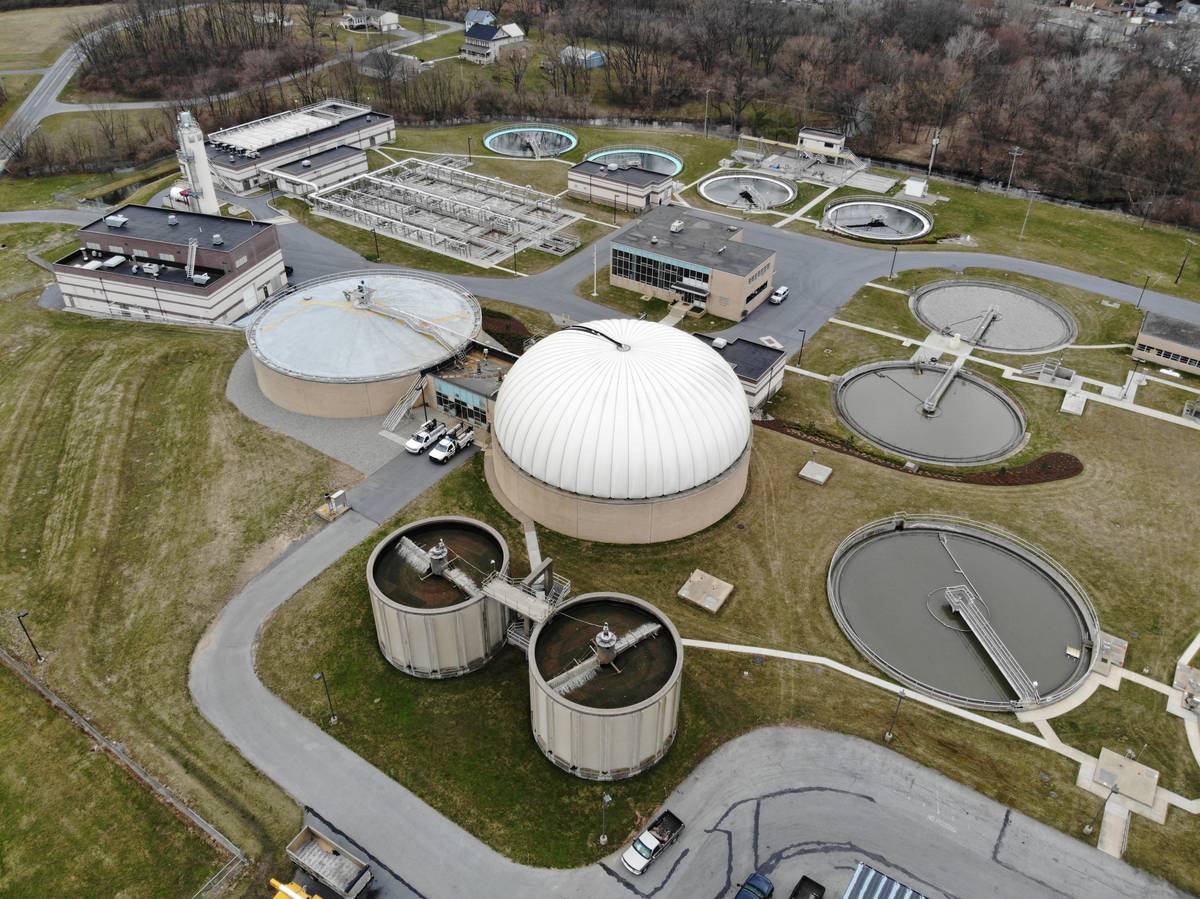This article was funded by LebTown donors as part of our Civic Impact Reporting Project.
The City of Lebanon Authority (COLA) received an A+ rating from Standard & Poors for bonds refinanced in 2019 to upgrade the wastewater treatment plant, COLA deputy director Tom Deitzler reported to the board Monday, Feb. 10.
These sewer revenue bonds funded upgrades to reduce the amount of nitrogen and phosphorous in effluent discharged into the Quittapahilia Creek. Lowering those levels was mandated by the Environmental Protect Agency as part of ongoing efforts to clean up the Chesapeake Bay. Those upgrades were completed in 2014, Deitzler said Tuesday.
To fund that project, COLA borrowed $45 million in a combination of bond issues and a bank loan. This was the first review by S&P since the bonds were refinanced in 2019 to take advantage of lower interest rates, Deitzler said.
“S&P conducted an initial review when we finalized that borrowing in 2019,” he told the board. “As long as those bonds are outstanding, there will be a review every four to five years.”
In affirming its earlier A+ long-term rating, S&P highlighted COLA’s “mature local economy, stable customer base, affordable rates, strong historical finances and supportive operational and financial management practices,” according to the summary report provided to LebTown.
Sewer revenue bonds are backed by the revenues collected from customers for wastewater treatment. COLA’s A+ rating reflects “revenue stability,” according to the report.
Lebanon city customers account for 40 percent of those revenues, with 60 percent from customers in the nine neighboring municipalities that COLA serves. Lebanon city has a 23-percent poverty rate, double the national figure, according to the S&P report.
As of Dec. 31, the outstanding principal and interest on the bonds was $11,169,200, Deitzler said in a telephone interview Tuesday. The bonds will be paid off in 2030.
COLA is in the midst of additional upgrades to the wastewater treatment plant, but these are funded by a PennVEST loan for $27,934,000. That loan has a 1-percent interest rate, less than what COLA would have incurred through another bond issue or bank loan.
“Water and sewer revenue bonds are attractive investments for people because the interest earned is tax-exempt,” Deitzler said in an email.
Deitzler also updated the board on two grant applications that COLA has submitted to the Susquehanna River Basin Commission’s Consumptive Use Grant program.
One project is for the purchase of additional leak detection equipment — specifically, loggers or below-ground sensors and listening equipment — that would be installed throughout Lebanon city, which has older water mains.
Cost of the equipment is estimated at $619,424. COLA’s grant request is for $516,000 as COLA must provide 20 percent of the total, Dietzler said.
Currently, COLA has 155 below-ground sensors as well as about a dozen mobile sensors.
COLA’s water distribution system includes about 100 miles of cast iron pipes, some of which date from the 1940s, COLA executive director Jon Beers has said. Beers did not attend Monday’s meeting.
These are prone to cracking, breaking, and leaking. Leak-detection equipment enables COLA to identify leaks before they cause sinkholes or street collapse.
The second grant application for $136,000 is for installation of a new pipe to allow more water from Siegrist Dam to flow into Mill Creek, Dietzler said. Increasing water flow from the dam into the creek is required by COLA’s new water allocation permit approved by DEP in 2024.

According to that permit, COLA must increase water release from the dam from 1.37 million gallons a day (mgd) to 3.1 mgd during months with historically low precipitation. The increased release is to protect downstream aquatic ecosystems and water users.
The grants are currently under review with awards to be announced in April, said Stacy Hanrahan, SRBC communications & outreach specialist, in an email Tuesday. The grant program is funded by fees associated with water-consuming industries, power plants and other commercial activities that use water without returning it to rivers or streams, she added.
In other business, the board approved payment of four construction invoices related to the current upgrades to the wastewater treatment plant:
- Pact Two LLC (general) – $1,294,311.60
- Garden Spot Mechanical (plumbing) – $6,570
- Garden Spot Mechanical (HVAC) – $18,595
- Garden Spot Electric (electric) – $23,850
The City of Lebanon Authority Board meets at 2311 Ridgeview Road, Lebanon, on the second Monday of each month at 3 p.m. The next meeting will be Monday, March 10. These meetings are open to the public and do not require registration.
Questions about this story? Suggestions for a future LebTown article? Reach our newsroom using this contact form and we’ll do our best to get back to you.

Keep local news strong.
Cancel anytime.
Monthly Subscription
🌟 Annual Subscription
- Still no paywall!
- Fewer ads
- Exclusive events and emails
- All monthly benefits
- Most popular option
- Make a bigger impact
Already a member? Log in here to hide these messages
You know us because we live here too. LebTown’s credibility comes from showing up, listening, and reporting on Lebanon County with care and accuracy. Support your neighbors in the newsroom with a monthly or annual membership, or make a one-time contribution. Cancel anytime.
























